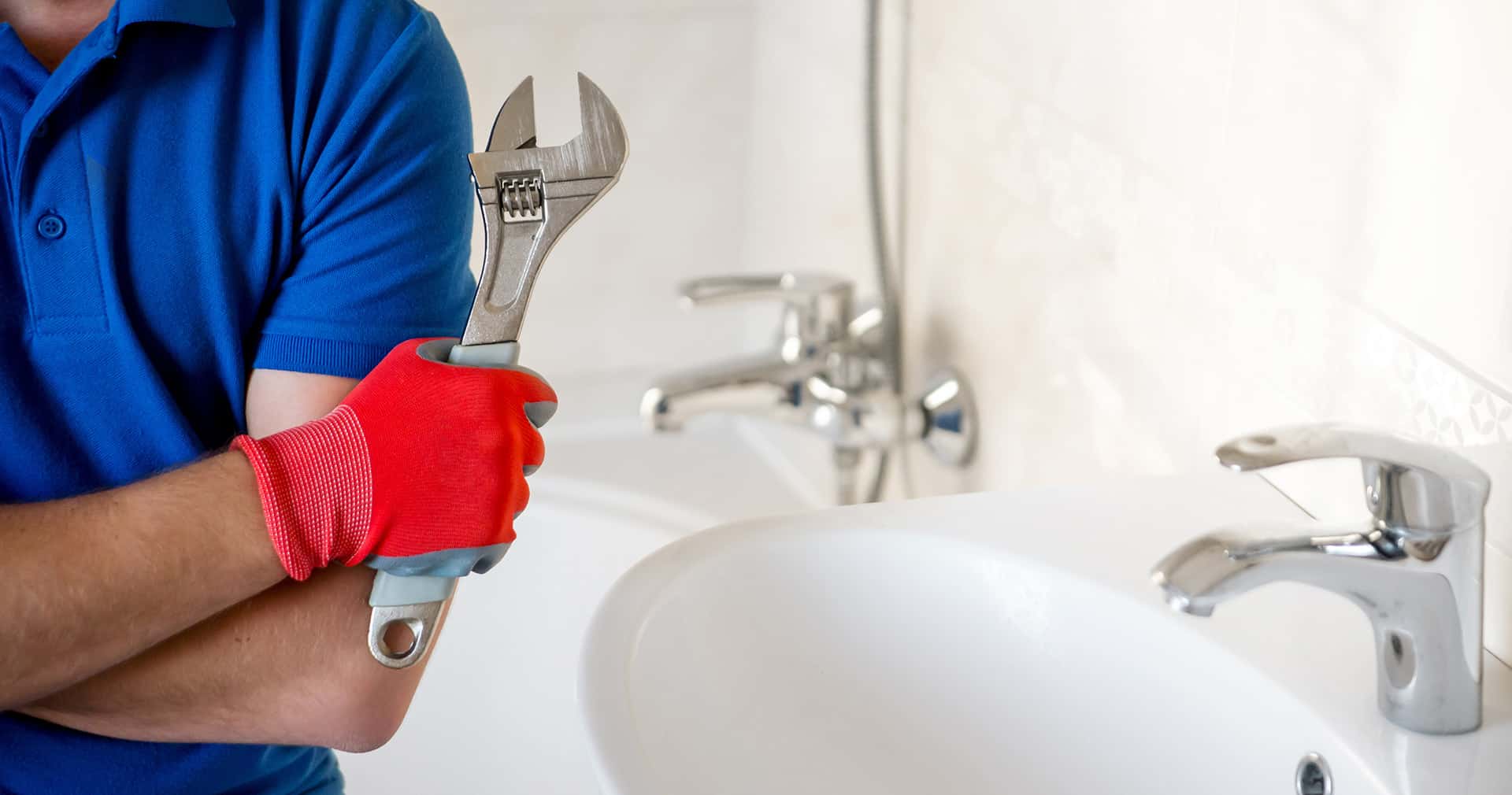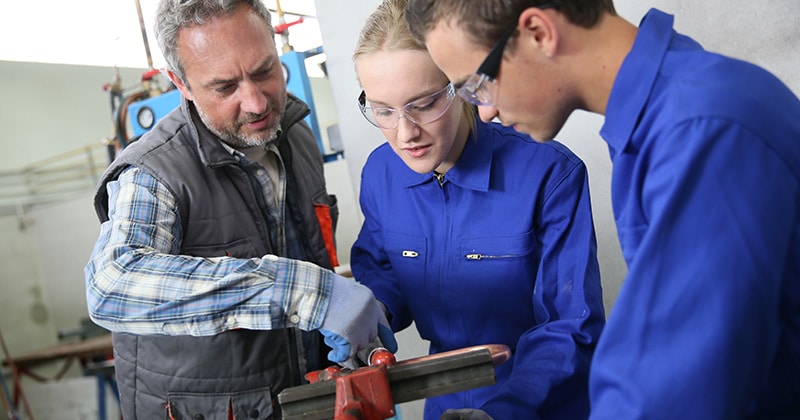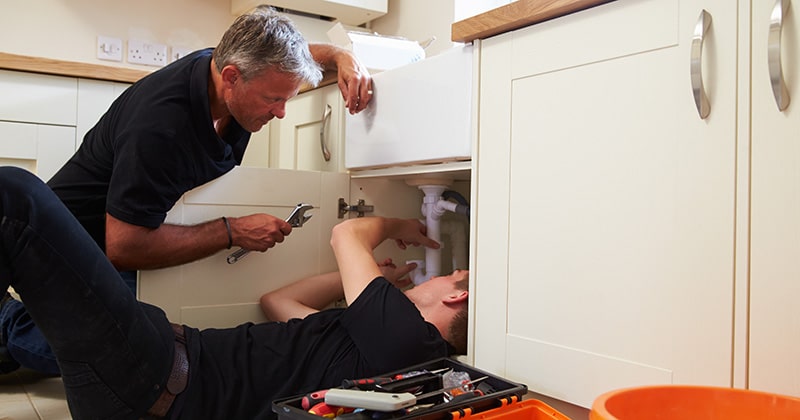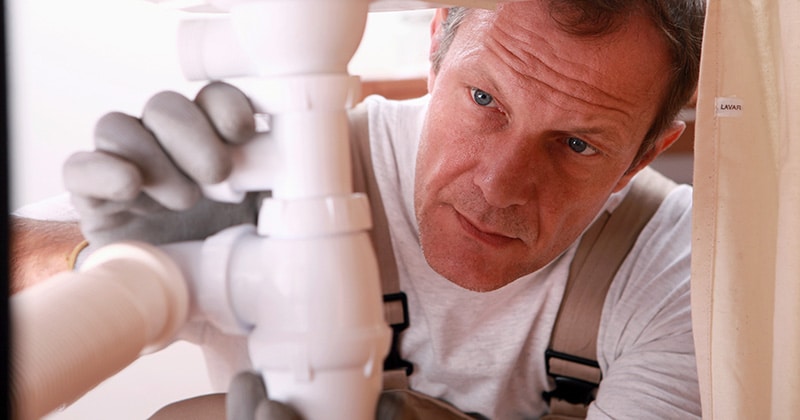
There’s always a demand for plumbing services. And that’s one reason why learning how to become a licensed plumber is an excellent investment in your future.
Plumbing can also be a rewarding job. Plumbers are problem-solvers. They’re someone people depend on to improve their comfort and quality of life.
If you are considering becoming a plumber, this is your ultimate guide. In this article, we’ll talk about researching the plumbing profession. We’ll detail the educational requirements and licensing and certification options.
We’ll share how you can gain practical, hands-on experience. And we’ll compare and contrast the benefits of working for a company or being self-employed.
Ultimately, we’ll give you three quick and easy tips to kick-start your career. Let’s get started.
Research the Plumbing Profession
Before you learn how to become a licensed plumber, it’s essential to research the plumbing profession. Understanding different parts of the industry helps you find your perfect niche. This can lay the foundation for a successful and rewarding career.
Here’s why and how to explore it:
- Identify your interests. Plumbing encompasses different specialties. Knowing what each job involves helps you decide where you fit best.
- Understand market trends. The plumbing market is expected to grow in the next five years. That’s great news for you. Keep an eye on other trends to make data-backed decisions.
- Know the competition. About 7% of the construction sector in the U.S. is plumbing. This shows moderate competition and opportunity for new workers to succeed.
You can also learn about the different kinds of plumbing careers. Here are some specialties you might consider:
- Residential plumbers install and repair plumbing in homes. Tasks include fixing leaks and adding new fixtures to bathrooms and kitchens.
- Commercial plumbers work on plumbing in commercial buildings like offices, schools, and hospitals. This job often involves more extensive installations and maintenance.
- Master plumbers have advanced training and experience. They typically manage large projects and may own a plumbing business.
- Service and repair plumbers, fix and maintain plumbing systems. They work with home and business owners.
- Pipefitters install and fix high-pressure piping systems. This job demands specific technical skills.
FROM ONE OF OUR PARTNERS: Commercial Plumbing vs Residential Plumbing

Educational Requirements to Become a Plumber
Here’s what you need to do to start your journey in the plumbing profession:
Step 1: Earn a High School Diploma or Equivalent
You need at least a high school diploma or GED to begin training as a plumber.
Basic education helps you understand the technical aspects of plumbing you’ll learn later.
Step 2: Know Your Local Requirements
Plumbing licenses and requirements differ depending on where you live. Knowing the rules in your area can help you meet all the necessary conditions to start working.
Step 3: Consider a Plumbing Vocational Program
You can choose to enroll in a vocational program at a trade school. This step is optional.
These programs teach plumbing basics, such as pipe systems and safety procedures. They also often include practical training.
Step 4: Complete an Apprenticeship
An apprenticeship is a mix of on-the-job training and classroom learning. You gain real-world experience while learning from professionals.
Step 5: Get Your Journeyman License
After your apprenticeship, you must get a journeyman license to work independently. This license shows you have the skills and knowledge to work as a plumber.
Step 6: Think About Specializing
You can further your career by gaining more experience and specializing in a niche. Becoming an expert can open up more job opportunities.
Step 7: Become a Master Plumber
A master plumber license is the next step for advanced roles. With this license, you can oversee projects and start your own business.
Alternative Educational Paths
The steps above are the conventional way of becoming a plumber. But there are alternatives. Depending on your specific needs, consider:
- On-the-job training: Some plumbers start with on-the-job training under a licensed plumber. They don’t get formal vocational training.
- Military service: Veterans may receive plumbing training during service. This training can count towards licensure.
- Community college programs. Some community colleges offer associate degrees in plumbing technology. This can give you a more in-depth educational experience.
RELATED ARTICLE: Plumbing Advertising Ideas to Create More Profit
Licensing and Certificates for Plumbers
You will need to obtain a few licenses and certificates as a plumber. Some are essential. Others allow you to advance your career. Let’s take a closer look.
Apprentice License
An apprentice license lets you start learning plumbing skills on the job. The application process varies by state. Generally, you will apply online.
With this license, you must always work under the supervision of a journeyman or master plumber.
Journeyman Plumbing License
You can apply for a journeyman license after finishing your apprenticeship and working the required hours. This is usually four or five years.
With a journeyman license, you can work on your own. But you will still need a master plumber to check your work.
To get your journeyman license, you’ll need to pass an exam. This test covers key plumbing concepts, quality standards, and regulations.
Master Plumbing License
This is the most advanced plumbing license you can get. You must pass the master plumber exam. Some states make you pass a business and law exam, too.
Optional Specialty Certifications
Specialty certifications demonstrate your expertise in specific areas of plumbing, such as gas piping, water treatment, or green plumbing solutions.
Certifications help you stand out. They position you as an expert. This can attract more, potentially higher-paying opportunities.
State-Specific Licenses
Each state has its own rules for plumbing licenses. If your state doesn’t set these rules, your local area might.
You must know and follow all licensing rules to work legally as a plumber and avoid fines.

How to Gain Hands-On Experience as a Plumber
Plumbing is a physical job. It makes sense that aspiring plumbers want practical experience before setting out independently.
Depending on where you are in your career path, there are a few different ways to achieve this.
High School Courses
You can get hands-on plumbing experience by taking classes in high school shops or technical education.
These courses give you early experience with plumbing tools. They teach you about mechanical systems, too.
Apprenticeship Programs
Working as an apprentice under experienced plumbers is not only mandatory. It’s also a great way to get some time on the tools.
You learn how to install pipes, solder, set up fixtures, work on drainage systems, and solve plumbing problems. As you get better, you’ll be given more complex tasks.
Vocational Plumbing Programs
You can participate in a vocational or trade school plumbing program if you want more education.
These courses give you structured training. They cover plumbing principles like reading blueprints and following safety procedures.
You’ll also get hands-on training in workshop settings.
Work as a Plumber’s Assistant
Plumber’s assistants undertake plumbing tasks alongside a licensed plumber. This role is ideal for those looking to learn the trade while working through a formal training program.

Self-Employed vs. Working for a Company
In addition to getting the proper licenses, you’ll need to decide whether to work for a company or start your own.
Each path has advantages and drawbacks. There’s no correct answer—it depends on your skill level and aspirations.
RELATED ARTICLE: How to Grow a Plumbing Business
Let’s compare the two options.
License Requirements
As a self-employed plumber, you will need to get a master plumber’s license. This allows you to secure permits and handle all aspects of plumbing work legally.
If you work for a company, you only need a journeyman license. The company’s master plumber will oversee major responsibilities and legal requirements.
Career Advancement Opportunities
Running your own business means you have the potential to expand your services. You can hire more plumbers and take on bigger projects as you build a five-star reputation.
Working for an established company often provides structured opportunities for promotion. For example, you might become a senior technician, supervisor, or manager.
FROM ONE OF OUR PARTNERS: How to Start a Plumbing Company
Potential Pay
When self-employed, your earnings reflect the amount of work you can secure and complete. There is potential to earn more. But your income can be inconsistent—especially in the beginning.
Employees generally have a steady paycheck. They may also receive health insurance, paid vacations, and retirement plans. Your income may be more predictable but possibly lower than what you could earn through self-employment.
Logistical Considerations
Self-employed plumbers manage all aspects of their business. They market their services to win clients, hire staff, and purchase and maintain tools and supplies. This demands a considerable amount of time and effort outside of actual plumbing.
Employed plumbers don’t typically have to worry about logistical concerns, secure job assignments, or buying tools. The company handles all of this. Plumbers focus more on the plumbing work rather than the business side.
Making the Right Decision
Choosing whether to be self-employed or to work for a plumbing company depends on what you value more.
Is it the independence and potential high earnings of running your own business? Or is it the stability and fewer responsibilities of being an employee?
Making a decision is about balancing risk and reward.
First Steps to Become a Licensed Plumber
Here are three tips to kick-start your career:
- Look up your state’s requirements. Every state has different licensing rules for plumbers. Check with your local plumbing board or licensing authority to determine what to do.
- Research plumber types. Learn about the different types of plumbers, like residential, commercial, or master plumbers. Decide which type aligns with what you want to do.
- Consider your education path. Consider whether you will start with a vocational program, an apprenticeship, or both. Choose the path that best suits your career goals.
Related Posts
Stay Informed
Get the latest news and insights plus, Service Fusion offers and updates.Thank you for your submission.
SHARE